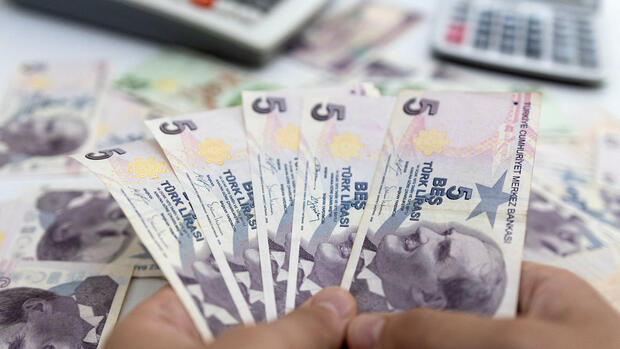Istanbul, Frankfurt Turkish President Recep Tayyip Erdogan has difficult weeks ahead of him. According to polls, he will have to fear for his office in the elections in May. Probably his biggest problem is the escalating inflation in the country, which was almost 50 percent in March.
This is fueled above all by a very loose monetary policy and the weakness of the Turkish currency, the lira. In the past twelve months alone, it has lost around a quarter of its value against the US dollar. If the exchange rate of the lira falls, this drives up prices for imports in Turkey and fuels inflation.
Many experts still consider the Turkish currency to be overvalued at the current level and expect it to fall further.
“There are certainly enough reasons for the ongoing slide in the lira,” says foreign exchange analyst at DZ Bank, Sandra Striffler. In addition to the high inflation, these are the decline in Turkish foreign exchange reserves and the high current account deficit. This means that Turkey imports significantly more goods and services from abroad than it sells there.
However, according to Striffler, the biggest stress factor is the comparatively relaxed monetary policy of the Turkish central bank. Since late summer 2021, under pressure from Erdogan, it has lowered the key interest rate from 19 percent to 8.5 percent today.
It’s not worth saving
In view of an inflation rate of almost 50 percent recently, this means that the real interest rate, i.e. the interest rate after deducting inflation, is clearly negative. So anyone who saves money suffers a loss of purchasing power, which makes saving very unattractive. On the other hand, it pays for many Turks to get into debt, which has increased lending.
This has led to rising imports and pushed up Turkey’s current account deficit. The chief economist of the International Banking Federation (IIF), Robin Brooks, believes that an end to the current credit boom is necessary in order to stabilize the exchange rate of the lira. For this to happen, however, key interest rates would have to rise significantly.
There was a similar situation in 2018. At that time, the Turkish central bank raised the key interest rate sharply, but this also triggered a severe recession. So far, the Turkish central bank has resisted a further decline in the lira by restricting the exchange of the Turkish currency into foreign currencies.
However, many economists are skeptical that this will be enough to halt the lira’s slide. The analysts at the US bank Citi are expecting a drastic interest rate hike after the elections in order to stabilize the lira exchange rate. Analysts at competitor JP Morgan believe that the Turkish lira could lose 30 percent against the dollar after the election, even if the central bank then hikes interest rates.
DZ analyst Striffler is more optimistic about the prospects for the lira, at least if the opposition wins the elections, and then assumes there will be positive effects on the lira exchange rate. From their point of view, “this would go hand in hand with the market’s hope for a longer-term less politically motivated monetary policy and a solution to the economic crisis”.
More: Why Erdogan’s power is faltering ahead of the elections

